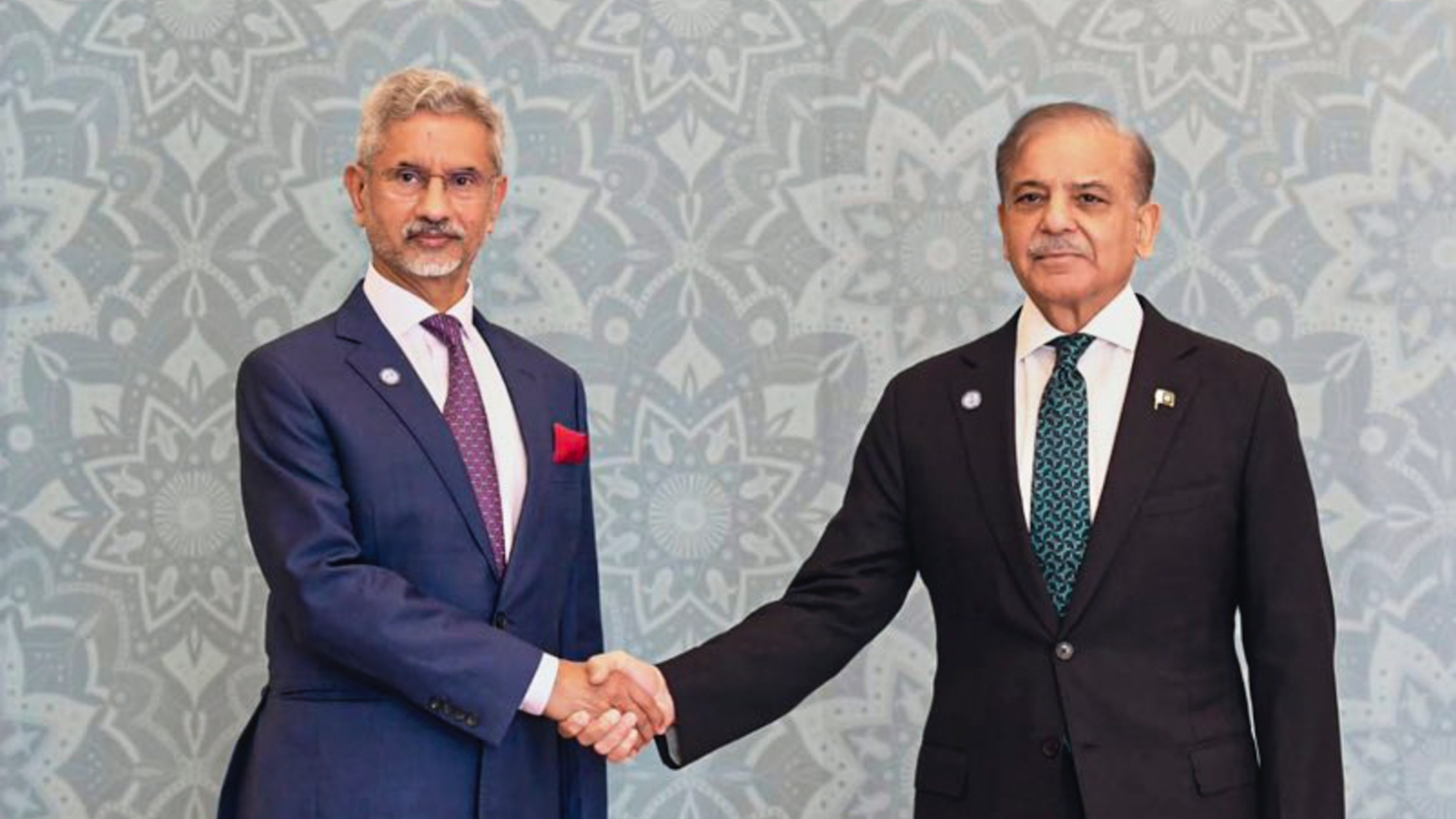The visit of Indian External Affairs Minister (EAM) S Jaishankar to Islamabad for the Shanghai Cooperation Organisation meeting of the Heads of Government on October 16 has led to a nascent but welcome thaw in the troubled India-Pakistan bilateral relationship. The fact that this is the first high-level visit by an Indian cabinet minister in nine years is testimony to the total lack of political contact between the two neighbours in recent years.
While the visit was not expected to address any of the long-standing bilateral issues that have been festering – some for decades going back to October 1947 – the fact that the Jaishankar visit did not lead to any acrimonious India-Pakistan exchanges, as was the case in the SCO meeting in Goa in May 2023, is symbolic of the positive ambience of the EAM’s visit. In the current visit there was no discordant reference to Kashmir or the abrogation of Article 370 and this was positive augury.
During his visit, apart from the formal SCO agenda where the EAM delivered India’s national statement, Jaishankar met with his Pakistani counterpart Ishaq Dar who is also the Deputy Prime Minister and a close aide of former Pak PM Nawaz Sharif. The two ministers met on the sidelines of the SCO meeting in a convivial manner, over lunch and dinner – and predictably, these images were splashed in the audio-visual media and on social media platforms.
What aroused immense interest in both countries is the suggestion that some form of cricketing ties could be resumed. Pakistan is scheduled to host the Champions Trophy in February 2025 and getting India to participate in a venue like Lahore would be a tremendous fillip to Pakistan’s image, and its cricket coffers and restore the people-to-people contact among millions of enthusiastic cricket fans in both nations. Cricket introduces an amazing degree of malleability in India-Pakistan ties however frigid they may be. The visit of the Pakistan cricket team to India in September 2023 for the ODI is illustrative. However, these reports have now been denied.
At the official level, both sides are proceeding with considerable caution to avoid any hype about a breakthrough and have gone to great lengths to emphasise to the media that the conversations were “casual”. Sources have been quoted to emphasise the point that the Jaishankar-Dar conversations were “preliminary” and “need to be thought through” on both sides.
The reason for this caution is valid, for there have been many false dawns in the complex and vitiated India-Pakistan bilateral relationship. The experience of PM Atal Bihari Vajpayee in 1999 is a case in point. It may be recalled that after the May 1998 nuclear weapon tests by India and Pakistan, both nations agreed to a Lahore Accord in early 1999. PM Vajpayee made a historic bus journey across the border (actor Dev Anand was part of the Indian team among other celebrities) to further peace and amity with a neighbour who had become an adversary.
However, even before the ink could dry on this extraordinary and ambitious agreement, the Pakistan army led by its then chief General Pervez Musharraf was embarking on covert plans to wrest Indian territory in the high Himalayas. The Kargil war of 1999 followed and ever since, there has been no meaningful progress towards restoring trust and amity.
To his credit, PM Narendra Modi in his first term sought to improve ties with Pakistan and made a dramatic visit in December 2015 to Lahore but it was clearly an impulsive initiative that did not lead to any substantive outcome in furthering the peace agenda. If anything, the deep state in Rawalpindi was emboldened to turn on the terror tap and the February 2019 Pulwama attack and the Balakot air strike that followed placed India’s relations with Pakistan on the back burner.
India has since held Pakistan’s feet to the fire over its support to jihadi terror groups and in September at the UNGA, Jaishankar had castigated it for exporting terrorism and nurturing radicalisation.
Against this backdrop, the Jaishnkar visit with its positive reverberations is a slender silver lining to a very dark cloud. How the Modi government responds to Pakistan in its third term will be instructive. On current evidence, when Delhi is dealing with other diplomatic challenges (with Canada and to an extent the US), an improvement in bilateral relations with Pakistan will have a positive impact on the regional grid.
At the SCO meeting in Islamabad that included Chinese PM Li Qiang, Jaishankar highlighted the common challenge facing all the members – combating terrorism, separatism and extremism. Evolving a consensual approach would be a major achievement but that appears elusive for now. The deep state in Pakistan that is invested in jihadi terror is both unwilling and unable to wean itself away from providing support to these groups and Beijing, while being cognisant of the reality has chosen to turn a blind eye, as long as its own interests in Sinkiang are not adversely affected.
While the Jaishankar visit points to the possibility of a more abiding thaw in the otherwise arid bilateral relationship, much will depend on how the Islamabad-Rawalpindi power brokers (political and military) respond to the window that beckons. Deeply entrenched vested interests and domestic lobbies that are opposed to a substantive improvement in the India-Pakistan bilateral can pose hurdles. And there is no escaping the reality that there is a Sisyphean cross that has bedevilled the bilateral relationship and the rock of acrimony and enmity has invariably triumphed.
One hopes that the Jaishankar-Dar “casual conversation” on the sidelines of the SCO was the first step.
The writer is director, Society for Policy Studies, New Delhi



